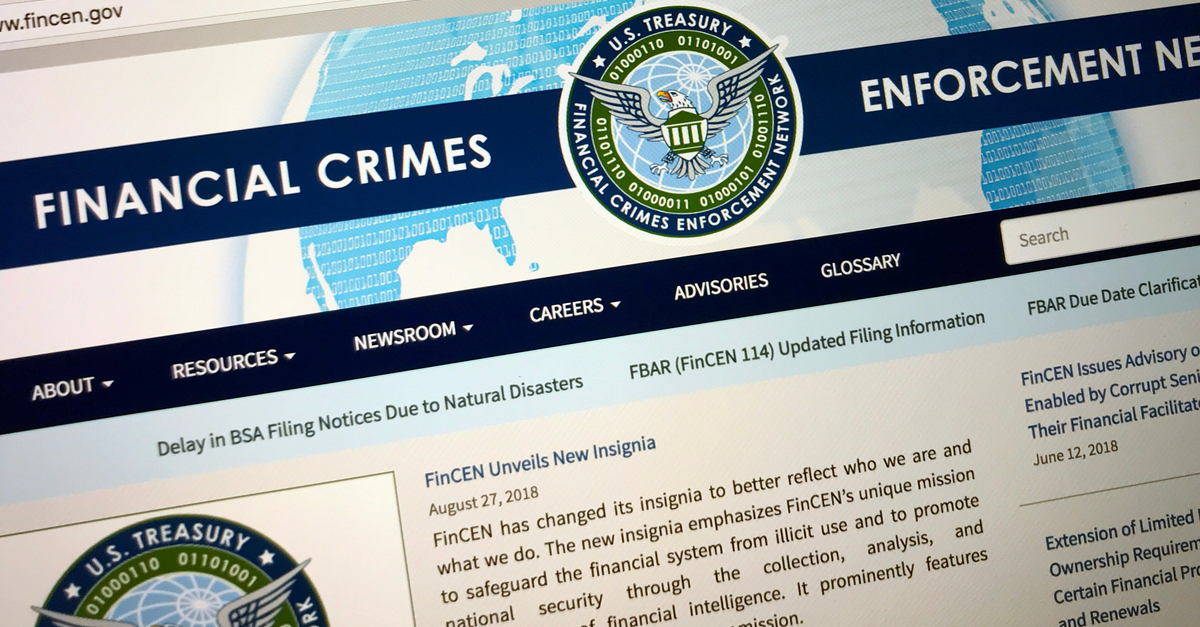Recommendations Respond to Request from Treasury’s Financial Crimes Enforcement Network for Input on Implementing the Corporate Transparency Act
WASHINGTON, DC – The FACT Coalition offered a blueprint to the Biden Administration on how the Treasury Department should draft the rule for a landmark anti-corruption and anti-money laundering law, the Corporate Transparency Act, enacted by Congress in January. The blueprint was submitted today in response to a request for public input by the Financial Crimes Enforcement Network (FinCEN), the agency tasked with implementing the law. The 157-page FACT letter carefully details dozens of recommendations to guide the agency on its implementation of the Corporate Transparency Act. The Corporate Transparency Act directs FinCEN to take the simple but effective step of requiring businesses operating in the United States to name their true, “beneficial” owners at the time of formation and provide updates as ownership information changes.
One of the biggest vulnerabilities in our current anti-money laundering regime is the incorporation of U.S. shell companies with concealed owners. These opaque structures have a well-documented history of being used to undermine our national security, hide bad actors, and launder the proceeds of a wide variety of crimes including sanctions evasion, terrorist financing, human trafficking, wildlife trafficking, drug trafficking, illegal arms dealing, tax evasion, fraud, the sale of counterfeit and pirated goods, and grand corruption.
“After more than a decade-long campaign to end the formation of anonymous shell companies that are exploited by the criminal and the corrupt, we welcome new steps by the Administration to close this major vulnerability in the U.S. financial system,” said Ian Gary, executive director of the FACT Coalition. “We applaud FinCEN on initiating the rulemaking on beneficial ownership and expect its efforts will continue apace to deliver a strong, comprehensive rule by the January 2022 statutory deadline.”
Among its many recommendations, the FACT Coalition’s blueprint emphasizes five essential areas FinCEN should prioritize to ensure effective implementation of the Corporate Transparency Act. The FACT Coalition urged FinCEN to:
- Bar the submission of beneficial ownership reports that fail to identify any beneficial owners; treat concepts of ownership – “own,” “control,” and “substantial control” – as irreducible legal concepts requiring no further definition in the rule; and ensure accurate, complete, and highly useful beneficial owner and entity disclosures;
- Broadly interpret “other similar entities” to include partnerships, sole proprietorships, trusts, foundations, and business associations, unless a particular entity qualifies for an exemption;
- Narrowly interpret each exemption to prevent bad actors from exploiting them and to maximize beneficial ownership transparency;
- Ensure practical and meaningful access to the registry for all authorized users, including federal officials, state and local law enforcement, financial institutions with anti-money laundering obligations, their regulators, and U.S. government agencies on behalf of foreign law enforcement officials; and
- Design a database that utilizes strong validation and verification measures, prioritizes data quality and functionality, and incorporates lessons learned from beneficial ownership registries in other countries.
“The Administration should support FinCEN’s rulemaking on beneficial ownership as a critical component of its ambitious international anti-corruption agenda. Getting the rule right would be an important way to deliver on U.S. anti-corruption commitments and deny authoritarians, kleptocrats, and criminals access to U.S. financial system, which undermines both U.S. national security and the rule of law abroad,” said Mr. Gary. “A strong rule would give U.S. law enforcement and their international partners modern tools to counter corrupt and criminal behavior around the world.”
With the Corporate Transparency Act, the United States is joining a growing trend of countries establishing beneficial ownership disclosure regimes. Last month, the Canadian government committed to establishing a public beneficial ownership registry.
During the legislative process, the law garnered the support of a powerful alliance of ideologically-diverse constituencies – many of whom have weighed in during the comment period, including: the national security community, police and prosecutors, banks and credit unions, CEOs, large businesses, small business owners, anti-human trafficking groups, human rights organizations, global development NGOs, anti-corruption advocates, and conservative and liberal think tanks. FACT encourages FinCEN to take their views into account during the rulemaking process.
###
Notes to Editor:
- Click here to read FACT’s blueprint for implementing the Corporate Transparency Act.
- Click here to read a joint comment from a diverse coalition of constituencies.
- Click here to see the FinCEN Advanced Notice of Proposed Rulemaking on Beneficial Ownership Information Reporting Requirements and view other comments.
- Click here to read a FACT sheet on the Corporate Transparency Act.
- Click here for information on the support for ending anonymous companies, crossing industries and the ideological spectrum.
- The United States is currently the easiest place in the world to incorporate an anonymous company to launder money and evade law enforcement, according to academics at UT-Austin and Brigham Young University. In all 50 states, it requires less information to form a company than to obtain a library card. An increasing number of countries — including all 27 members of the European Union, the United Kingdom, the UK’s 14 overseas territories, and the UK’s 3 crown dependencies already require the disclosure of the true owners of companies.

